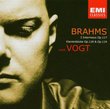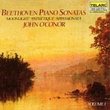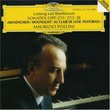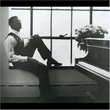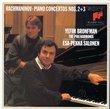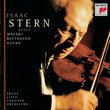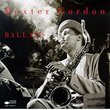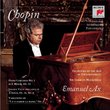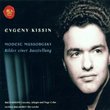| All Artists: Franz Liszt, Arnaldo Cohen Title: Franz Liszt: Complete Piano Music, Vol. 1 Members Wishing: 0 Total Copies: 0 Label: Naxos Release Date: 6/10/1997 Genre: Classical Styles: Forms & Genres, Requiems, Elegies & Tombeau, Short Forms, Historical Periods, Modern, 20th, & 21st Century Number of Discs: 1 SwapaCD Credits: 1 UPC: 730099485227 |
Search - Franz Liszt, Arnaldo Cohen :: Franz Liszt: Complete Piano Music, Vol. 1
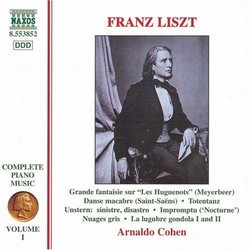 | Franz Liszt, Arnaldo Cohen Franz Liszt: Complete Piano Music, Vol. 1 Genre: Classical
The sound could be better, but Arnaldo Cohen's whirlwind technique and rapier temperament is tailor-made for the demanding transcriptions presented here. By contrast, the Brazilian pianist imbues the cryptic late Liszt wor... more » |
Larger Image |
CD DetailsSynopsis
Amazon.com The sound could be better, but Arnaldo Cohen's whirlwind technique and rapier temperament is tailor-made for the demanding transcriptions presented here. By contrast, the Brazilian pianist imbues the cryptic late Liszt works with tenderness and mystery. A disc no Liszt maven should pass up, especially at Naxos's bargain price. --Jed Distler Similar CDs
Similarly Requested CDs
|
CD ReviewsA Portrait of the Virtuosity and Mind of Franz Liszt J. Almquist | Seattle, WA | 04/25/2000 (5 out of 5 stars) "This is a brilliant and wonderfully priced CD! If you enjoy the works of Liszt, then get this CD. The selected works here detail, in my opinion, the darker, more emotional pieces written/transcribed by Liszt. This includes Nuages gris and the 2 Lugubre gondola pieces, all considered to be "experiments" in mood and tonality. In Nuages gris, Liszt pours out some of his darker emotions, possibly related to the turmoils of his life with women, composition (and its critics, to which there were many), and old age (since this was one of his last works). Many dislike these darker works, but there are a few, such as myself, who find an inherant beauty to them. Of course, the album is also full of Liszt's virtuoso piano writing, which Mr. Cohen pulls off in fine fashion. Totentanz features some amazingly fast runs, while also filling in for the rest of the orchestra (this is an orchestral work of Liszt's which he condensed for piano). This album pays homage to the often misunderstood genius of Franz Liszt, and is a worthy addition to any collection. (Oh, and the price doesn't hurt either :)" Somehow I missed this one when it first came out J Scott Morrison | Middlebury VT, USA | 06/28/2003 (5 out of 5 stars) "I've only recently become familiar with the playing of Arnaldo Cohen, and I've gotten several of his recordings in the last month or so. I'm impressed by his red-blooded playing. He's not one of those cookie-cutter competition-winning note-spinners, but tends to put more of his own passion into the performance. Of course, that's important with repertoire on this Liszt disc. Just listen to the coruscating 'Danse macabre,' Liszt's arrangement of Saint-Saëns's symphonic poem. It will peel the paint off your listening-room wall. He plays both versions of 'La lugubre gondola,' something we rarely get, and certainly not in recital. He manages to make them very different.This is mostly late Liszt, the exception being the 'Huguenots' piece which, I have to admit, does go on a bit too long. That's Liszt's fault, not Cohen's. He does all that can be done with it.I've always been struck by the unsettling 'Unstern' ('Dark Star', as some translate it, but I've come to think of it as Liszt's 'Black Hole' because it's so weird and modern-sounding) ever since I heard it as an encore played by Garrick Ohlsson years ago. It's one of those forward-looking, almost-atonal things that Liszt has, in latter years, gotten more and more attention for. Liszt subtitled it 'sinistre, disastro' and Cohen infuses those qualities into this strange little masterpiece; it is head and shoulders above Leslie Howard's pale performance from his complete Liszt traversal. The only other worthy competitor that I'm aware of is Pollini on DG.Finally we have a chillingly effective performance of the solo piano version of 'Totentanz', Liszt's exhaustive workout on the Dies irae. I've always preferred it to the piano-and-orchestra version, which is more commonly heard and recorded. This is volume one of Naxos' ongoing series of complete Liszt piano music; they are using a different pianist for each CD and they certainly picked a good one to start with.Scott Morrison" One of the finest Liszt recordings available Hexameron | 06/29/2006 (5 out of 5 stars) "Franz Liszt was one of the most influential composers of the nineteenth century, with a vast amount of music of high quality and musical value. Unfortunately, there is a trend in the recording world to focus on Liszt's supposed "famous" piano pieces like the Liebestraume No. 3, Un Sospiro, Hungarian Rhapsody No. 2 and La Campanella. Leslie Howard's 59 Volumes of Liszt's music on the Hyperion label is certainly a remarkable exception. But it seems every professional pianist today has his own Liszt CD of music that has been recorded by twenty other pianists. Thankfully, this Naxos release, which constitutes the first Volume in an ever growing series of Liszt's piano music, traverses the "non-famous" and more profound piano works of Liszt.
Liszt's piano transcription of Saint-Saens' "Danse Macabre" is an ingenious arrangement and one which Humphrey Searle believes is "a great improvement on the original work!" Indeed, it captures all of the orchestral effects, dancing skeletons, and vivid colors of this magnificent work. Moreover, Cohen's performance elicits a chilling and exciting atmosphere. One barely has to strain to imagine a troupe of dancing skeletons, conjured easily through the shrieking and rattling registers of the piano. Liszt's "Nuages Gris," an example of pre-Debussy impressionism, is a staple from Liszt's late period and Cohen plays it with ghostly delicacy. Liszt's "Unstern: sinistre, disastro" is startling for its modernism and evocation of an impending misfortune or evil. Cohen's expert handling of dynamics and the sheer power of his emotional involvement makes this a memorable account. A deeper exploration of Liszt's morbid and bleak imagination occurs in the two "La lugubre gondolas." Inspired by Wagner's death, they are visceral, disturbing, hauntingly beautiful, and truly unlike any other music emitted from the piano in the nineteenth century. Not even Chopin accomplishes what Liszt does in making the piano communicate terror, hopelessness and pessimism. Liszt's "Reminiscences des Huguenots" displays an early but equally impressive stage of Liszt's evolving style. Leslie Howard has recorded this operatic fantasy many times due to the several versions Liszt wrote. Having heard all of Howard's renditions, however, I am stunned to find Cohen's interpretation totally indomitable. He brings this work to a level of brilliance and drama that Howard's execution lacks. Cohen allows the music to breathe and sing; his tempo and phrasing are acute; he refuses to rush through tender moments, but also has sense enough to intensify the bravura sections. So far Cohen has left me exceedingly contented, but he elevates himself even further with his colossal efforts in the piano transcription of "Totentanz." For those unfamiliar with such a work, it is an epic set of variations on the "Dies Irae" plainchant and one of Liszt's masterpieces, "inspired as far back as 1838, when Liszt saw Orcagna's frescoes 'The Triumph of Death' in the Campo Santo at Pisa." Liszt's transcription transforms the work for piano and orchestra into a tour-de-force solo piano composition. Every facet of the original version is absorbed and embraced. More significantly, Cohen commands orchestral sonority, conjures demonic cackles, and gracefully delivers dramatic expression. Bottom line: I simply cannot resist the urge to call this recording a stunning achievement. These are the kinds of works Liszt should really be admired for. Arnaldo Cohen is virtually obscure in today's recording world, but after hearing his power, sensitivity and interpretative clairvoyance in these Liszt works, I am only baffled by his limited discography. For another inexpensive recording of his, I would direct the reader to this poetic triumph: Brahms: Variations and Fugue in B flat on a Theme of Handel; Schumann: Fantasia in C; Arabesque." |

 Track Listings (8) - Disc #1
Track Listings (8) - Disc #1
